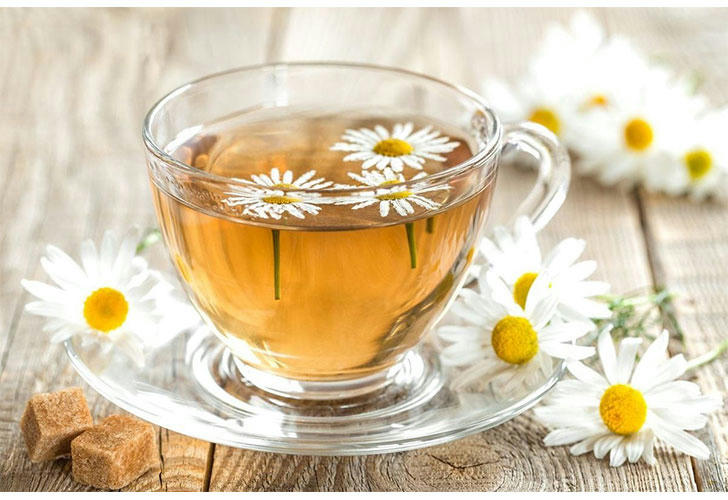7 Helpful Over-the-Counter Anti-Anxiety Medications
Anxiety can be a challenging companion for many people, affecting daily life and overall well-being. While prescription medications are often the go-to solution for managing anxiety, there are several over-the-counter (OTC) options that can provide relief without the need for a prescription. In this article, we will explore various OTC anti-anxiety medications, their benefits, and important considerations to keep in mind.

Understanding OTC Anti-Anxiety Options
Over-the-counter anti-anxiety medications typically include dietary supplements, vitamins, and herbal remedies. While these products can help alleviate mild anxiety symptoms, it's essential to remember that they are not a substitute for professional medical advice or treatment. Here’s a closer look at some popular OTC options:
1.Magnesium
Magnesium is an essential mineral that plays a vital role in numerous bodily functions, including nerve function and muscle relaxation. Research suggests that magnesium may help reduce anxiety symptoms by regulating neurotransmitters that send signals throughout the nervous system. Many people can benefit from magnesium supplements, especially those who may not get enough from their diet.
How to Use: Start with a lower dose of around 100 mg and gradually increase as needed, but do not exceed 350 mg per day without consulting a healthcare provider.
Sources: You can also find magnesium in foods like spinach, almonds, and dark chocolate.
2.L-Theanine
L-theanine is an amino acid predominantly found in green tea. It is known for its calming effects and has been studied for its potential to reduce stress and anxiety without causing drowsiness. Some research indicates that L-theanine may help improve sleep quality and cognitive function as well.
How to Use: L-theanine supplements typically come in 200 mg capsules. It’s advisable to start with this dosage and not exceed 400 mg without medical advice.
Benefits: It promotes relaxation and may help lower cortisol levels during stressful situations.
3.Omega-3 Fatty Acids
Omega-3 fatty acids are crucial for brain health and have been linked to improved mood and reduced anxiety symptoms. Some studies suggest that increasing omega-3 intake through supplements can help alleviate anxiety and depression.
How to Use: Fish oil supplements are a common source of omega-3s. Ensure you choose high-quality products to avoid contaminants.
Considerations: Omega-3s can interact with certain medications, such as blood thinners, so consult your doctor if you’re on any prescription drugs.
4.Chamomile
Chamomile is well-known for its calming properties and is often consumed as tea or taken in supplement form. It contains apigenin, an antioxidant that binds to specific receptors in the brain to promote relaxation and reduce anxiety.
How to Use: Chamomile tea can be enjoyed daily, while supplements are also available.
Benefits: Regular intake may help manage mild to moderate anxiety symptoms effectively.
5.Valerian Root
Valerian root has been used for centuries as a natural remedy for anxiety and sleep disorders. It is believed to enhance the levels of GABA (gamma-aminobutyric acid) in the brain, which helps calm nervous activity.
How to Use: Valerian root is available in capsules or tinctures; follow the dosage instructions on the product label.
Considerations: While generally safe, it’s best used occasionally rather than long-term due to limited research on its long-term effects.
6.Lavender
Lavender is another popular herbal remedy known for its soothing properties. Studies have shown that lavender oil can significantly reduce anxiety levels when inhaled or taken orally.
How to Use: Lavender essential oil can be diffused in your home or added to bathwater for relaxation. Supplements containing lavender extract are also available.
Benefits: It’s effective for reducing anxiety without causing sedation, making it suitable for daytime use.
7.Ashwagandha
Ashwagandha is an adaptogenic herb traditionally used in Ayurvedic medicine to combat stress and anxiety. It helps balance cortisol levels in the body, which can lead to reduced feelings of stress.
How to Use: Available in capsules or powder form; follow the recommended dosage on the product label.
Benefits: Regular use may lead to significant reductions in anxiety levels over time.
Important Considerations
While OTC anti-anxiety options can provide relief, it's crucial to approach them with caution:
1.Consult Your Healthcare Provider: Always talk to your doctor before starting any new supplement, especially if you’re taking other medications or have underlying health conditions.
2.Monitor Your Symptoms: Keep track of how you feel after starting any new treatment. If symptoms persist or worsen, seek professional help.
3.Combine with Other Treatments: OTC options are often most effective when used alongside therapy or lifestyle changes such as regular exercise and mindfulness practices.
4.Be Aware of Interactions: Some supplements can interact with prescription medications or exacerbate certain health conditions; always check with a healthcare professional if unsure.
Conclusion
Over-the-counter anti-anxiety medications offer accessible options for those looking to manage mild anxiety symptoms without prescriptions. From magnesium and L-theanine to herbal remedies like chamomile and valerian root, these alternatives can provide comfort and support on your journey toward better mental health. Remember that while these remedies can be beneficial, they should complement professional treatment rather than replace it. If you’re struggling with anxiety, don’t hesitate to reach out for support—there’s no need to face it alone!
